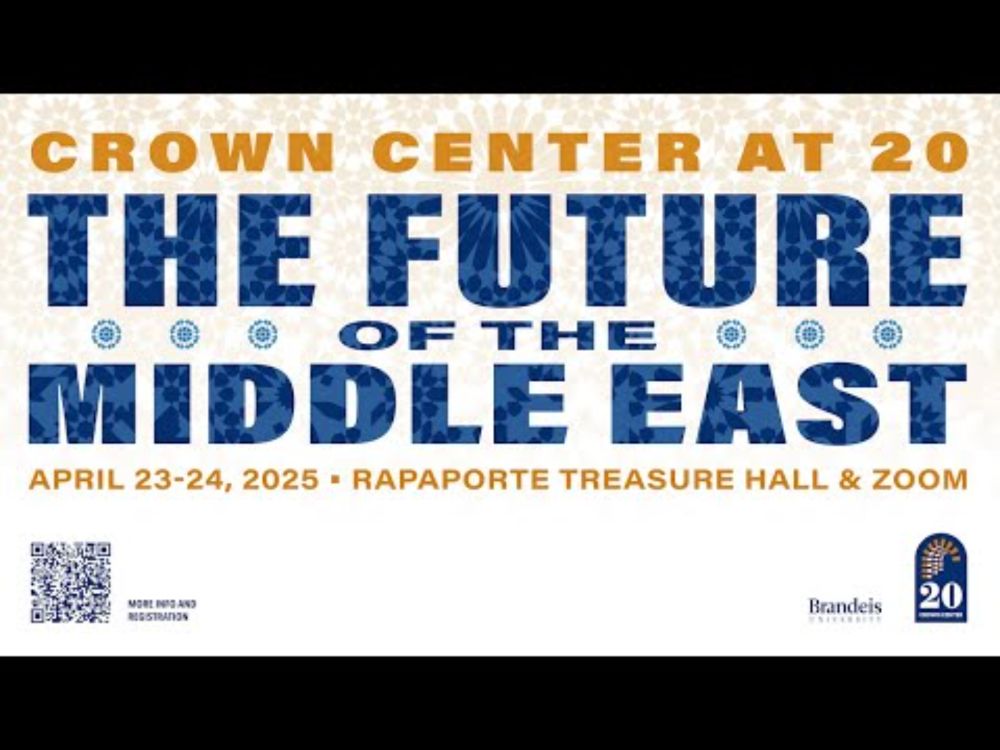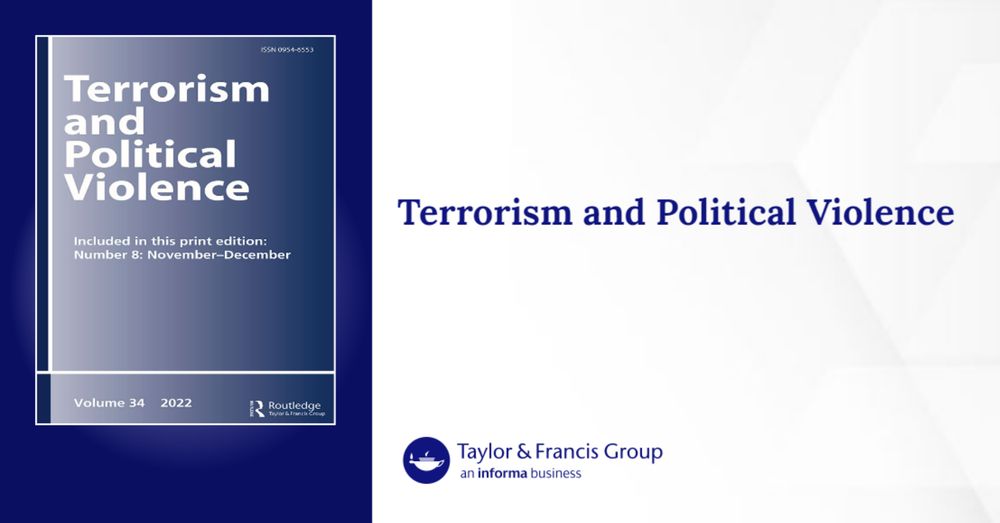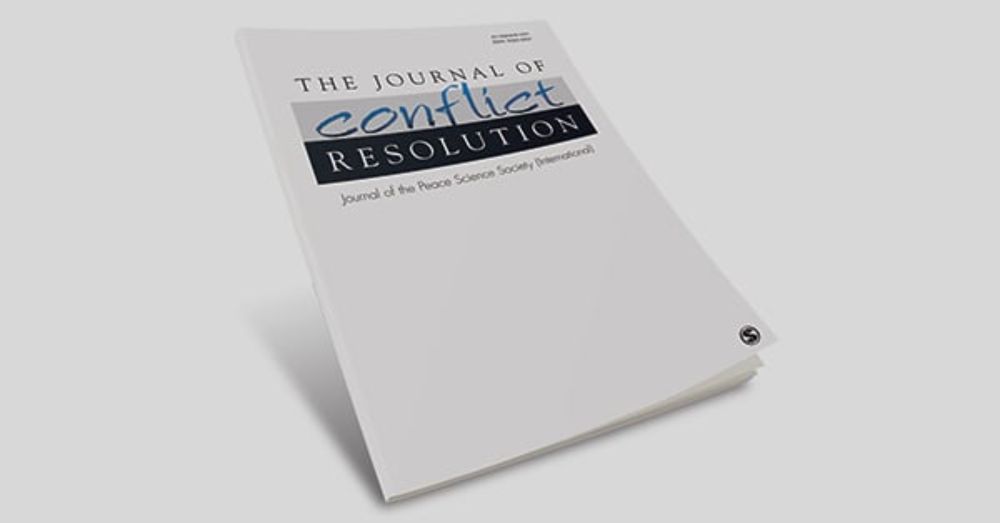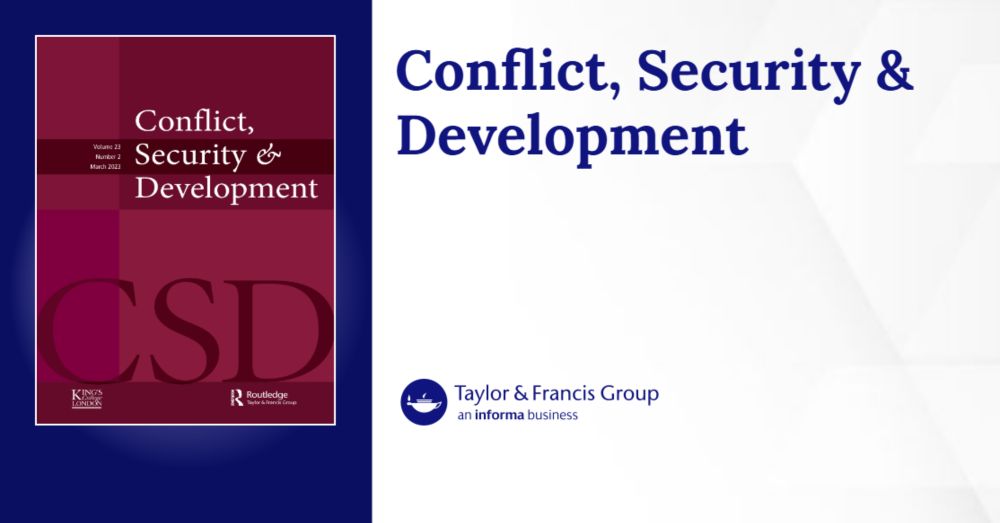YouTube video by Crown Center for Middle East Studies
The Future of Israel, Syria, and the Levant | Crown at 20: The Future of the Middle East
With continuing challenges to stability in #Syria, are there any opportunities for optimism? Listen to our recent seminar on the future of #Israel, Syria, & the Levant with Crown scholars Shai Feldman, Daniel Neep, @jillianschwedler.bsky.social, & @peterkrause.bsky.social:
youtu.be/YUBhGr2P1XM
16.07.2025 18:52 — 👍 5 🔁 2 💬 0 📌 0
This is the final article in a trilogy in which 1) we examined how education impacts how people think about the perpetrators of political violence (JEPG 2017): www.peterjpkrause.com/_files/ugd/7...
10.07.2025 16:16 — 👍 0 🔁 0 💬 1 📌 0
Our findings reveal how the uninformed public’s lack of specificity on perpetrators and victims enables the idea that “one person’s terrorist is another person’s freedom fighter,” but also how education can change those definitions and, perhaps, their application /6
10.07.2025 16:16 — 👍 0 🔁 0 💬 1 📌 0
The more that students and the public learn about terrorism, the more they define it as a rational act (though not a moral one). /5
10.07.2025 16:15 — 👍 0 🔁 0 💬 1 📌 0
Although other studies identify the religion of the perpetrator (especially Islam) as perhaps the most significant element in implicit, revealed definitions of terrorism, almost no students or members of the public mentioned religion/Islam in their explicit, stated definitions /4
10.07.2025 16:15 — 👍 0 🔁 0 💬 1 📌 0
We found that students and the public initially define terrorism as being committed by non-state actors and targeting civilians at a far lower rate than do academics and governments. Those percentages increase after students/the public take courses, watch lectures on terrorism /3
10.07.2025 16:15 — 👍 0 🔁 0 💬 1 📌 0
We gathered evidence from an extensive series of experimental and observational surveys involving students in 31 terrorism and non-terrorism related courses at 12 universities, as well as online survey experiments of the general public. /2
10.07.2025 16:15 — 👍 0 🔁 0 💬 1 📌 0
So happy to publish my article w Betul Ozturan & Liane Young, "How Students and the Public Define Terrorism, and How Education Affects Those Definitions." A 🧵 on our findings, and a link to free copies below. /1
10.07.2025 16:14 — 👍 5 🔁 1 💬 1 📌 0
Fair
19.01.2025 23:42 — 👍 1 🔁 0 💬 0 📌 0
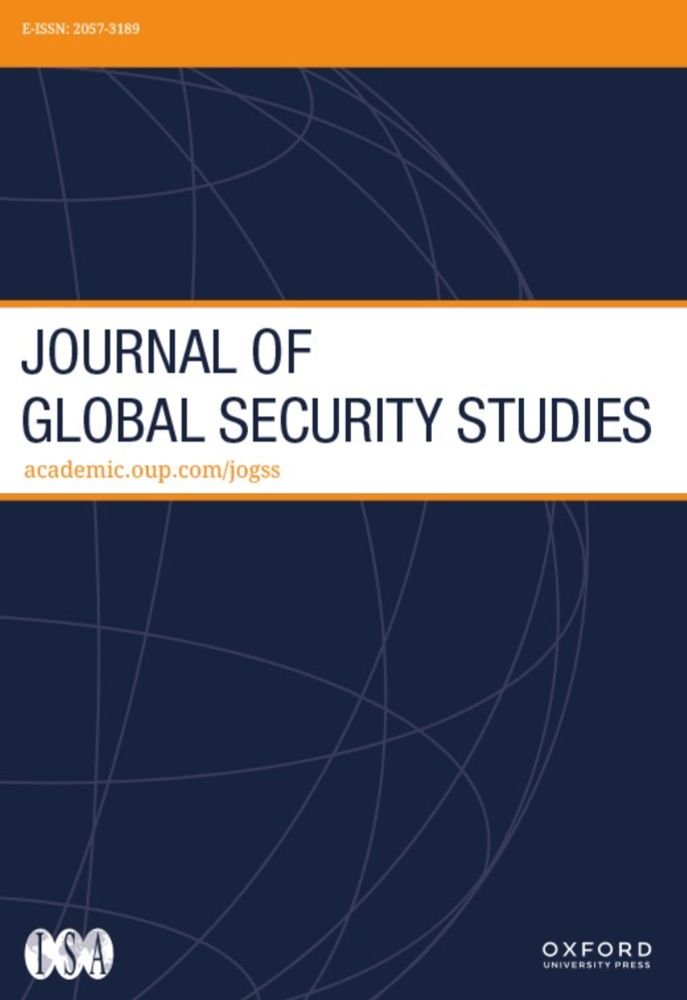
Accepting Appreciation: Partner Perceptions and Major Non-NATO Ally Designations
Abstract. A diverse group of governments have accepted “Major Non-NATO Ally” (MNNA) status since the designation's establishment in the late 1980s. This Un
I am happy to share my article on the US's "Major Non-NATO Ally" status, which signals friendship and facilitates cooperation without providing formal security commitments. I compare the cases of Qatar and the UAE to explain why and when some US partners accept MNNA status.
doi.org/10.1093/jogs...
16.01.2025 14:07 — 👍 1 🔁 1 💬 0 📌 0
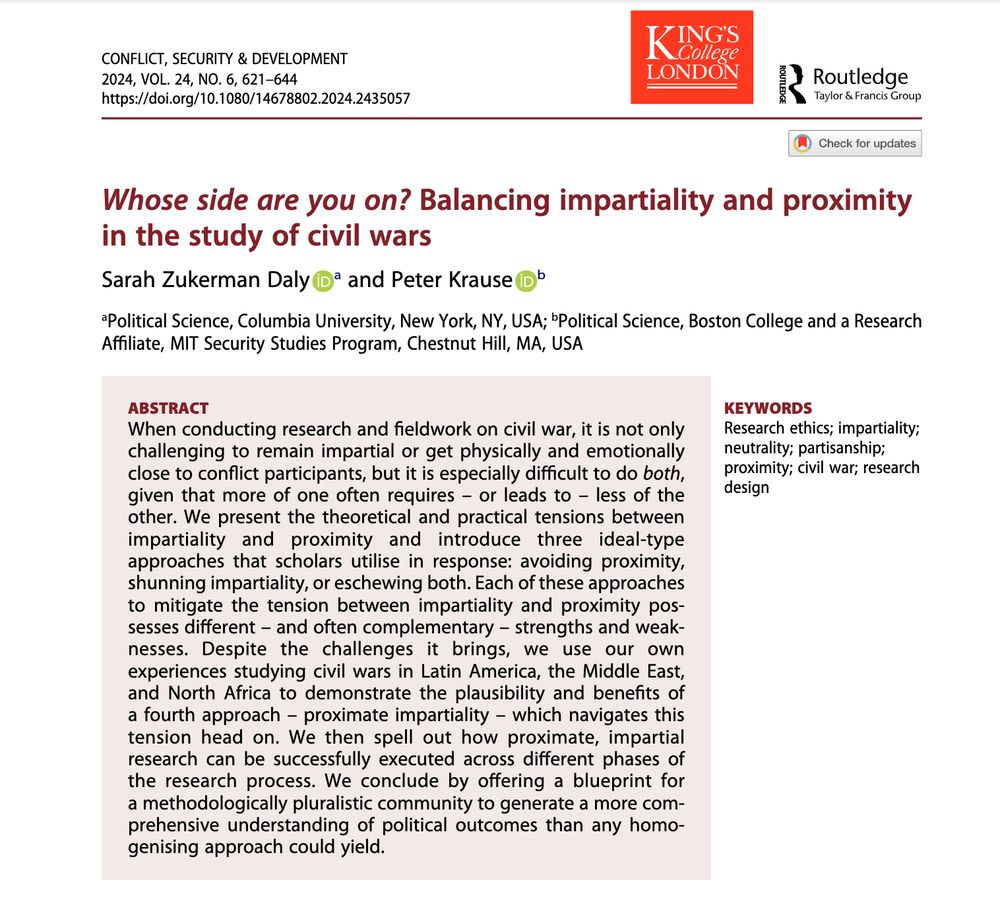
My new article w Sarah Z Daly now physically published. New link for 50 free copies in next post, write me for one if it runs out. See pinned thread for details. "Whose Side Are You On? Balancing Impartiality and Proximity in the Study of Civil Wars" @bostoncollege.bsky.social
#Conflictsky #Polisky
14.01.2025 17:14 — 👍 13 🔁 4 💬 1 📌 0
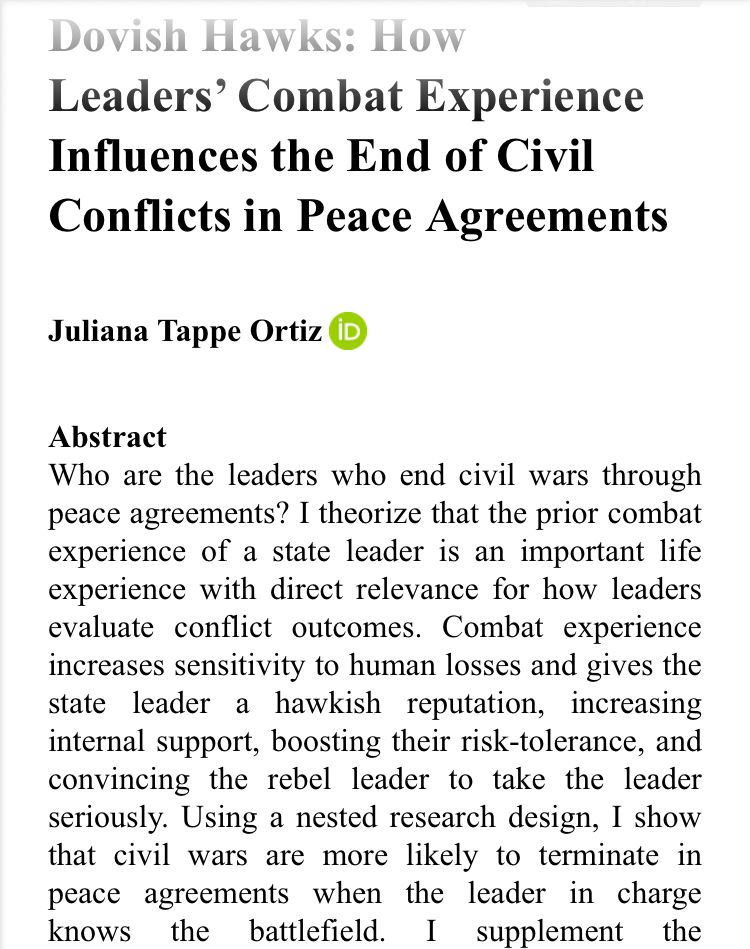
Christmas came early this year 🎉 Check out my first article published in the Journal of Conflict Resolution ! journals.sagepub.com/doi/10.1177/...
23.12.2024 16:51 — 👍 18 🔁 2 💬 3 📌 1
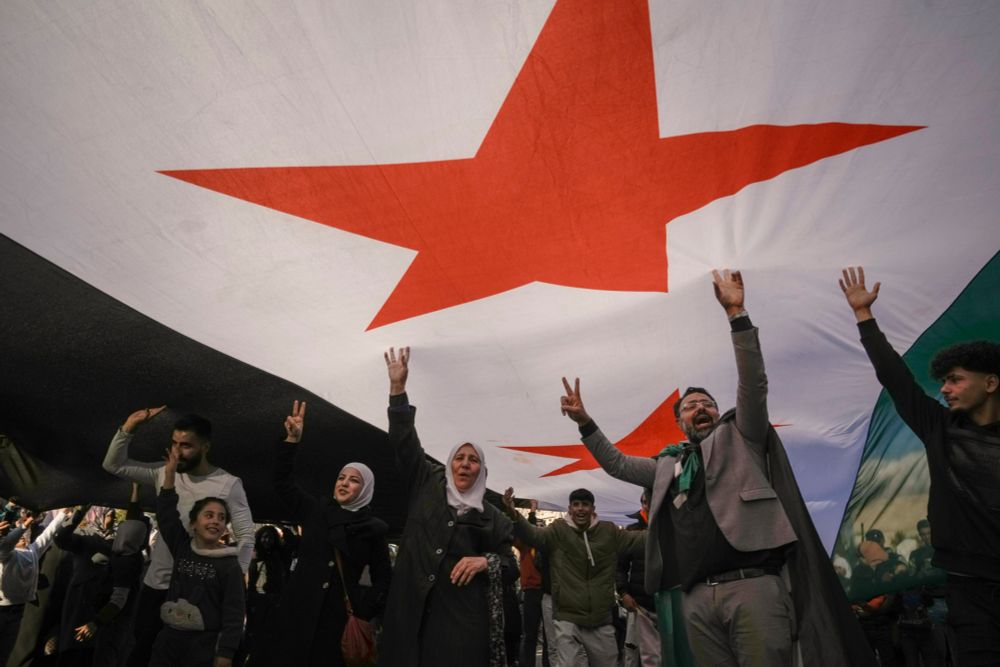
Beyond Assad: The Rise of Hay’at Tahrir al-Sham and Syria’s Uncertain Future
This Crown Conversation with Haian Dukhan & Daniel Neep
is genuinely excellent. From misconceptions re: what Assad's fall means for the region to prospects for the future of #Syria, it manages to provide insight through the uncertainties. Great read. www.brandeis.edu/crown/public...
19.12.2024 13:54 — 👍 4 🔁 2 💬 0 📌 0
This is part of an amazing special issue of Conflict, Security, and Development edited by Christine Cheng + Christopher Day with great articles @susannacampbell.bsky.social @meganturnbull.bsky.social @janetilewis.bsky.social
@kaimthaler.bsky.social @joehud.bsky.social others not yet @bsky.app
04.12.2024 20:12 — 👍 4 🔁 0 💬 0 📌 0
We then spell out how proximate, impartial research can be successfully executed across different phases of the research process. We conclude by offering a blueprint for a methodologically pluralistic community to generate a more comprehensive understanding of political outcomes.
04.12.2024 20:04 — 👍 1 🔁 0 💬 1 📌 0
Despite the challenges it brings, we use our own experiences studying civil wars in Latin America, the Middle East, and North Africa to demonstrate the plausibility and benefits of a fourth approach – proximate impartiality – which navigates this tension head on.
04.12.2024 20:03 — 👍 1 🔁 0 💬 1 📌 0
Each of these approaches to mitigate the tension between impartiality and proximity possesses different – and often complementary – strengths and weaknesses (which we describe in the article).
04.12.2024 20:02 — 👍 1 🔁 0 💬 1 📌 0
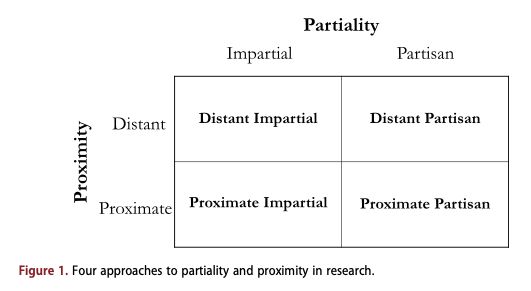
We present the theoretical and practical tensions between impartiality and proximity and introduce three ideal-type approaches that scholars utilize in response: avoiding proximity, shunning impartiality, or eschewing both
04.12.2024 20:02 — 👍 1 🔁 0 💬 1 📌 0
When conducting research and fieldwork on civil war, it is not only challenging to remain impartial or get physically and emotionally close to conflict participants, but it is especially difficult to do both, given that more of one often requires – or leads to – less of the other
04.12.2024 20:01 — 👍 1 🔁 0 💬 1 📌 0
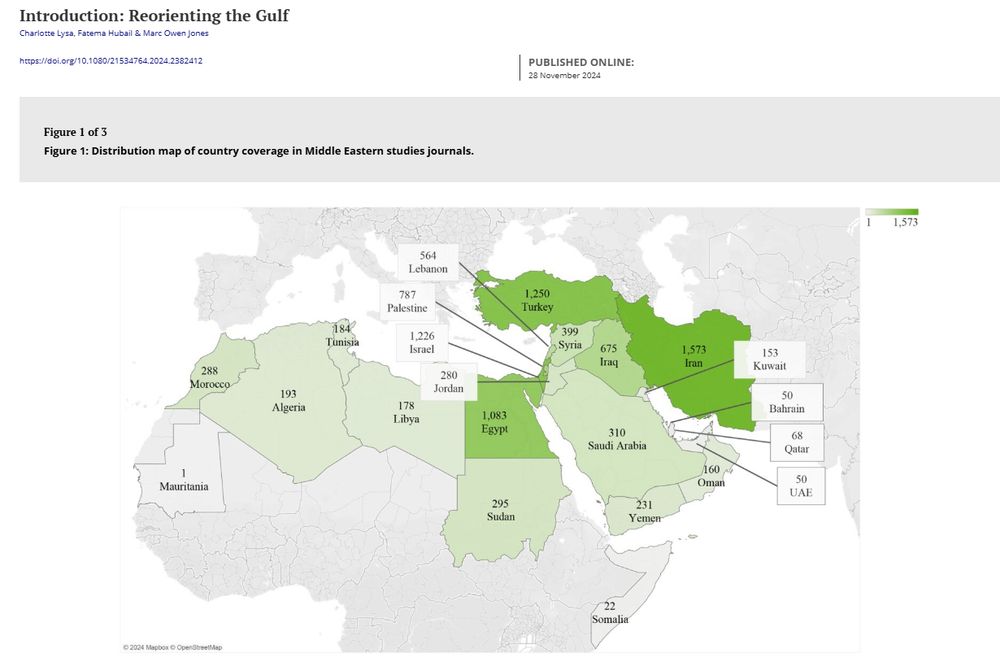
🧵1/ As part of this issue we did an analysis of over 10,000 articles of journals with Middle East in the title published since the 1950s. The idea was to see how the Gulf fit in in the 'discursive production of the Middle East'. #GulfStudies #menasky
29.11.2024 09:52 — 👍 34 🔁 8 💬 2 📌 2
Thank you for creating, would love to be added
27.11.2024 21:45 — 👍 2 🔁 0 💬 1 📌 0
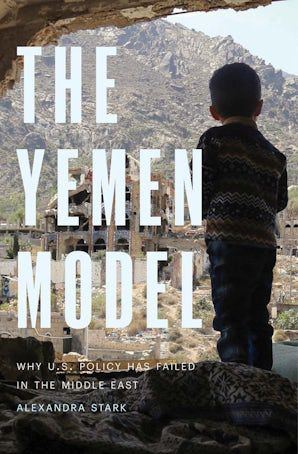
The Yemen Model
A close look at failed U.S. policies in the Middle East, offering a fresh perspective on how best to reorient goals in the region In this book Alexandra S...
My book The Yemen Model argues that a short-term approach to “security” in Yemen that ignores the well-being of Yemenis themselves has repeatedly drawn the U.S. into conflicts in the Middle East: yalebooks.yale.edu/book/9780300...
19.11.2024 13:59 — 👍 14 🔁 4 💬 2 📌 2
I am pleased to share my article on the formation and functioning of the Sultanate of Oman's independent foreign policy. The article stems directly from a term paper for a seminar I took with @peterkrause.bsky.social at Boston College, & I am grateful for his feedback and insights on the manuscript!
15.11.2024 15:20 — 👍 5 🔁 2 💬 0 📌 0
Project MUSE - The Power of Partnerships: Explaining Oman's Independent Foreign Policy
Check out @tylerbparker.bsky.social new article on the history and causes of Oman’s independent foreign policy: muse.jhu.edu/pub/119/arti...
@apsamena.bsky.social
15.11.2024 14:57 — 👍 4 🔁 0 💬 0 📌 1
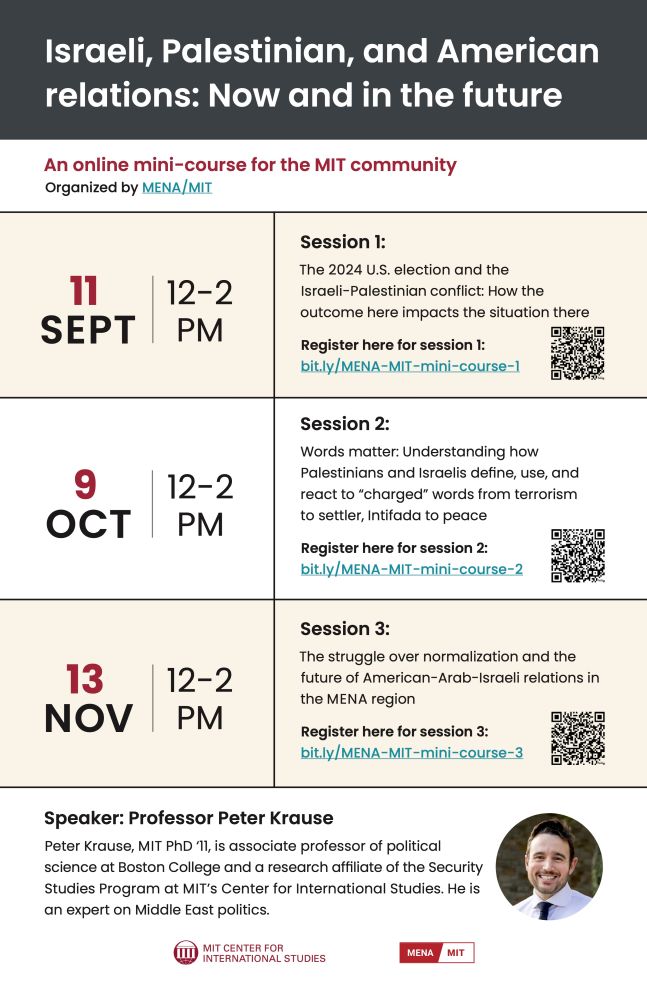
I'm leading a new series of talks @MIT on "Israeli, Palestinian, and American Relations" The first is Wed 9/11 from 12-2pm, the day after the first Harris-Trump debate. I 'll discuss how the 2024 U.S. election will impact Israelis, Palestinians, and the region. I hope to see you there.
09.09.2024 18:04 — 👍 1 🔁 0 💬 0 📌 0
Professor of Political Science at University of Wisconsin-Madison
Associate professor at the University of Waterloo (Canada); visiting professor at the College of Europe in Natolin (Poland); and author of Military Alliances in the Twenty-First Century (Polity, 2022).
www.alexlanoszka.com
Postdoctoral researcher at Uppsala Centre for Holocaust and Genocide Studies @uhgs.bsky.social
Researching the legacies of civil war and mass violence | Everyday reconciliation, transitional justice, peacebuilding, Sri Lanka.
Research Fellow, University of Oxford
Theology, philosophy, ethics, politics, environmental humanities
Associate Director @LSRIOxford
Anglican Priest
https://www.theology.ox.ac.uk/people/revd-dr-timothy-howles
Reporter for online newspaper, Maghrebi.org, focusing on news from the Sahel region.
Assistant Professor of Political Science at the University of Houston. Studies rebel recruitment and indoctrination, gender and conflict, and terrorism during civil wars.
https://www.michaelsoules.com
Freelance Foreign Correspondent with a focus on women’s rights and foreign affairs.
Professor of Political Science, University of Copenhagen. Research interests: European and Nordic Politics, Political Economy. Collector of modern ceramics, Faroese paintings and Christine Swane paintings. Lifelong fan of Bob Dylan and modernist poetry.
PhD Research Fellow, University of Oslo | USIP Fellow | University of Edinburgh Alum. Nigeria, social resilience, civilian agency, conflict, & local peace.
Chair in Comparative Politics @york.ac.uk | #UKRIFLF Civil War Paths project @civilwarpaths.bsky.social | Award-winning author @cornellupress.bsky.social Mobilizing in Uncertainty | mom
Head of Research for North Africa and the Sahel at the Global Initiative Against Transnational Organized Crime. Mainly working on transnational organized crime, state fragility, and targeted sanctions against criminal actors.
▪︎ Reading, writing & thinking about the moral foundation of scholarship
▪︎ Author of Doing Good Social Science: http://bit.ly/3EgFA2z
▪︎ More about my work: immersiveresearch.co.uk
▪︎ DM for speaking/workshop requests
Journal of the Association for the Study of Ethnicity and Nationalism
Political scientist @Victoria University of Wellington, Associate Editor of Mediterranean Politics & Diaspora Studies - migration, diasporas, religion & politics, Turkey, Europe, Aotearoa New Zealand
A learned society working with the countries, peoples and societies of the Levant to advance public education through promoting and disseminating research in the humanities, social sciences and related subjects.
https://www.cbrl.ac.uk
Co-chair Stand Together for Higher Ed, journalism professor at UMass Amherst, historian of US press/democracy/political struggle, dog lover, reader, trekker. Southerner in New England. I do not speak for my institution.
Professor of Political Science, @uu-polisci.bsky.social, Uppsala University 🇸🇪 • Climate Change • Crisis • Disasters • Global Environmental Politics • International Relations • Public Policy.
Head of Projects and Research
@enc-europe.bsky.social
ENcouncil.org
Co-founder of The Centre for Creative Conversation creativeconversation.org Co-author of 'The Talking Revolution', civilian lead MCDC’s ‘Understand to Prevent’. @samaritans.bsky.social #MMT
